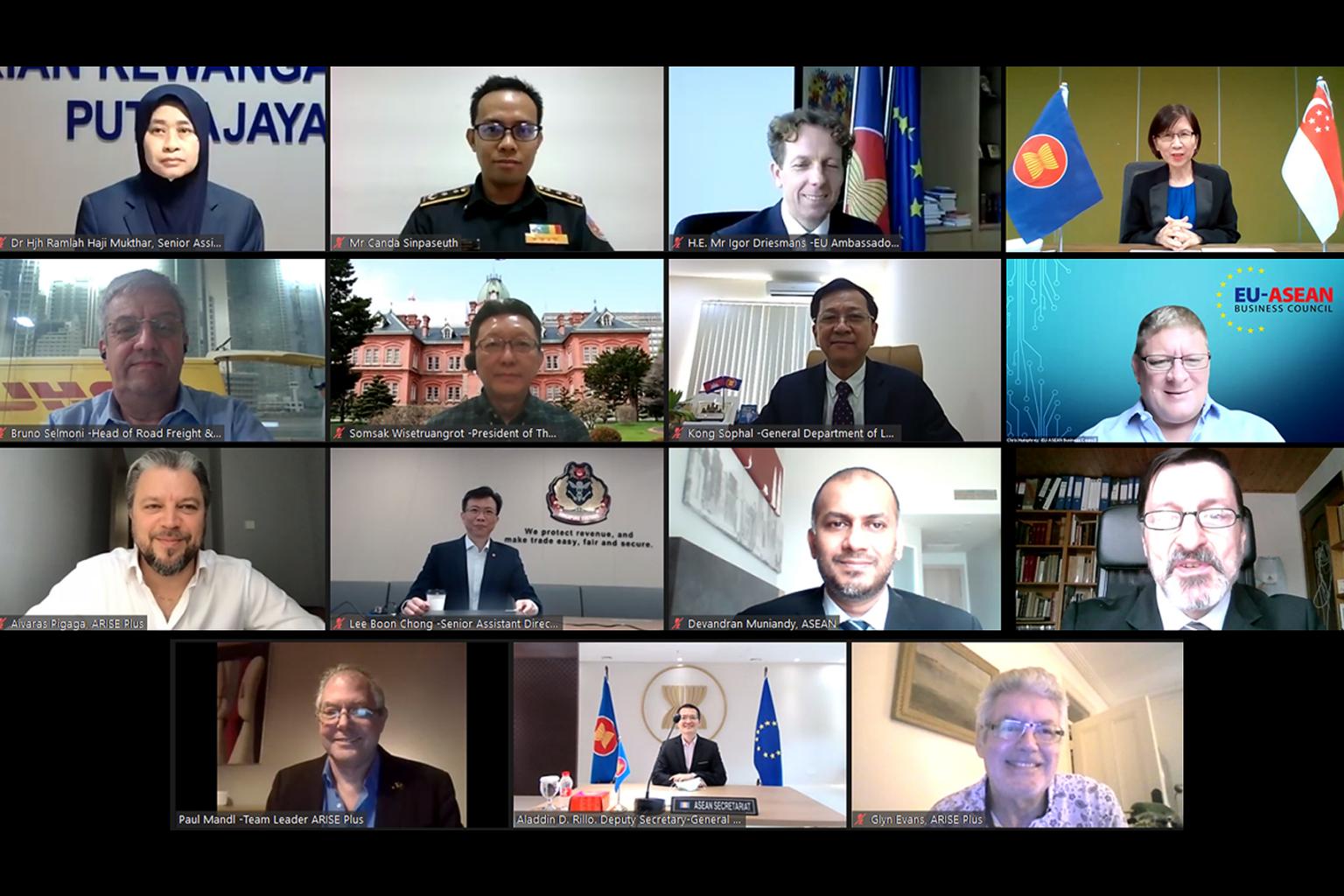Asean Customs Transit System involving 6 members launched, may be expanded
Sign up now: Get ST's newsletters delivered to your inbox

The Asean Customs Transit System was officially launched at a virtual event on Nov 30, 2020.
PHOTO: ACTS
SINGAPORE - A new computerised system for the movement of goods across six Asean countries connected by land was inaugurated on Monday (Nov 30) and officials plan to expand it to include the remaining members of the regional grouping and other forms of transport.
The Asean Customs Transit System (Acts), an online transit management system which was officially launched at a virtual event, aims to make the overland transport of goods more efficient, and at a lower cost, without the need to make repeated Customs declarations or change of vehicles at each border.
Traders can now carry out a single transit journey across participating countries - Cambodia, Laos, Malaysia, Singapore, Thailand and Vietnam - via a single truck, Customs declaration and banker's guarantee.
Speaking at the launch event, Asean secretary-general Lim Jock Hoi said the system - which has been implemented since Nov 2 - will enhance Asean's trade and production networks, as well as establish a more unified market for its firms and consumers.
He said that having the system could also support the response to Covid-19 by accelerating the movement of medical supplies, vaccines, and personal protective equipment within member states.
"Under the simplified regime and Customs cooperation of the Acts, the movement of emergency healthcare goods and supplies can be facilitated across national borders without the need for customs guarantees during this difficult period," he said.
Myanmar is expected to join the system next year, added Mr Lim. Feasibility studies are also being done for Brunei, Indonesia and the Philippines to join in the future.
The first successful Acts transit movement took place on Oct 23 to 24, with a truck travelling from Singapore via Malaysia to Thailand, after trials began in January this year.
Acts was developed to help realise the Asean goals of reducing trade transaction costs by 10 per cent in three years from 2017, and doubling intra-Asean trade between 2017 and 2025.
Businesses can lodge e-transit declarations directly with Asean Customs authorities, and track the movement of their goods from loading at departure to its final destination.
Ms Ng Bee Kim, who is director-general of trade at Singapore's Ministry of Trade and Industry, said that the successful launch of Acts is a testament to Asean's commitment to strengthen supply chain connectivity in response to the Covid-19 pandemic.
She stressed that it was crucial to undertake more outreach efforts at both the Asean and national levels to create more awareness of the system among private companies.
"As we gain experience and confidence, I hope and look forward to the expansion of Acts to bring even wider benefits to our traders in Asean," she said raising the possibility of incorporating other modes of transport, such as sea and air, into the system.
The system is managed by a permanent team based in the Asean Secretariat in Jakarta. It received support from the European Union, which provided technical expertise and €10 million (S$16.02 million) in funding for Acts since 2012.
Asked about the main challenge in working on Acts during a panel discussion after the inauguration on Monday, senior assistant director-general for trade at Singapore Customs Lee Boon Chong said it was the scale of the project.
"This is a first-of-its-kind, large-scale, multi-year regional initiative that requires long-term commitment and strong teamwork," he said.
Not only did Asean Customs administrations have to work with each other, they also had to work with other government agencies on the types of goods allowed for transit, he said.
The different rules, laws and business practices of different Asean states was another challenge, he added.
Mr Paul Mandl, who is a team leader at the Asean Regional Integration Support from the European Union Plus (Arise Plus) programme, said that the pandemic called for a rethinking of the idea of global supply chains, with more emphasis now on regional ones.
"Acts can bring about part of the shift I think we will see in the longer term of regional supply chains, facilitating the movement of goods manufactured in Asean for other Asean markets."


